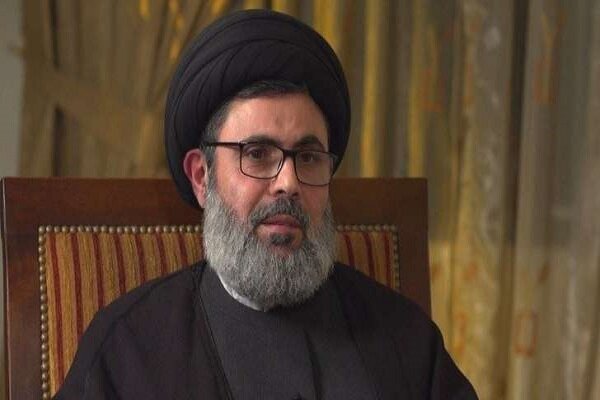Hezbollah confirms Hashem Safieddines martyrdom
Hezbollah confirms Hashem Safieddine’s martyrdom
TEHRAN - Hezbollah announced on Wednesday that Sayyed Hashem Safieddine, the head of the Lebanese resistance movement’s Executive Council, was martyred in an Israeli airstrike on Beirut earlier this month.

“We pledge to our great martyr and his martyred brothers to continue the path of resistance and jihad (struggle) until achieving its goals of freedom and victory,” Hezbollah said in a statement.
The Israeli army said on Tuesday that Safieddine was killed during a strike on October 4.
Safieddine was widely expected to be formally elected as the next Hezbollah leader after Israel assassinated Sayyed Hassan Nasrallah last month.
Israel killed Nasrallah, who was the movement’s chief since 1992, in an airstrike on a neighborhood in southern Beirut on September 27.
US media acknowledged that Israel used American-made 900kg (2,000-pound) bombs in the strike that killed Nasrallah and levelled residential buildings in Beirut’s suburb of Dahieh.
Israel has killed multiple Hezbollah commanders amid the exchanges of fire with the resistance group since October 8, 2023. That is a day after Israel launched its war of genocide in Gaza. Hezbollah has carried out attacks against Israel in a show of solidarity with Palestinians in Gaza.
Israel also launched a massive bombing campaign in Lebanon on September 23 this year and launched a ground incursion into southern Lebanon on October 1.
Israel has killed about 2,500 people in Lebanon since October last year, including 1,800 in the past few weeks.
In response to Israel’s attacks, Hezbollah has intensified its retaliatory operations targeting strategic military sites in Tel Aviv and Haifa.
The resistance movement’s reprisal strikes have spread a growing sense of panic among Israelis keeping the regime on its toes.
******Israel’s illusions
Israel is under the illusion that its war on Lebanon along with the assassination of Hezbollah’s leaders and commanders will bring the movement to its knees.
But Israel’s previous wars on Lebanon clearly illustrated that the regime is unable to weaken Hezbollah.
Hezbollah dealt a major blow to Israel after ending the regime’s nearly 20-year occupation of Lebanon.
Israel launched an offensive in Lebanon in 1982, sending its tanks all the way to Beirut. It occupied southern Lebanon until it was driven out by Hezbollah in 2000.
Israel carried out the assault after coming under attack from Palestinians in Lebanon.
Sporadic clashes between Israel and Hezbollah continued even after it was forced to leave southern Lebanon.
From hubris to humiliation
Tensions boiled over in 2006 when Israel went to war with Hezbollah in southern Lebanon.
The war started on July 12, 2006 – days after the Lebanese resistance movement captured two Israeli soldiers.
The conflict ended in mid-August after Israel, which had displayed a lot hubris, failed to defeat Hezbollah.
Israel killed more than 1,000 Lebanese, mostly civilians in the 34-day conflict.
Israel lost more than 120 soldiers in the 34-day war.
Before his martyrdom, Nasrallah had said on multiple occasions that the 2006 war, known as the July War, was a success for the resistance movement.
In August 2021, an Israeli inquiry acknowledged the regime’s failure to achieve its goal in the 2006 war, describing the conflict as “unsuccessful” and “missed opportunity”.
“Israel initiated a long war, which ended without its clear military victory,” the inquiry found.
Hezbollah’s military power
The military capability of the Lebanese resistance movement has grown since then.
Hezbollah’s martyred chief, Sayyed Hassan Nasrallah, had said that the resistance movement has 100,000 fighters.
Hezbollah has also increased its stockpile of missiles from 14,000 in 2006 to about 150,000 and has developed precision-guided missiles and its drone programs.
source: tehrantimes.com